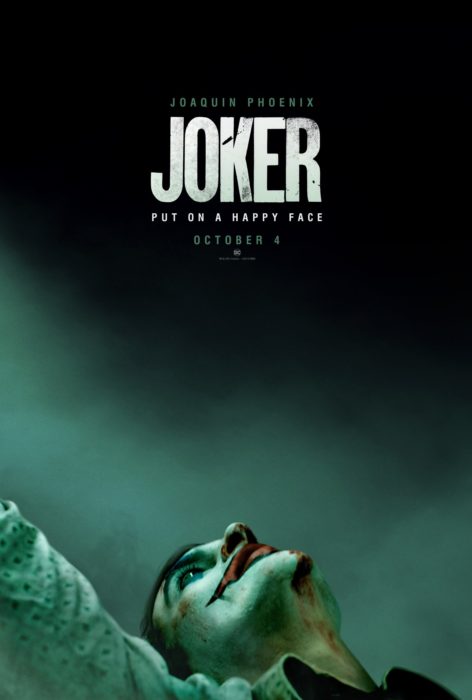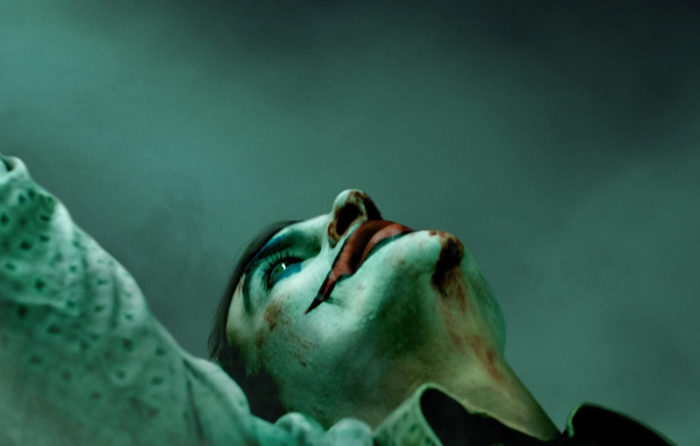Sorry, ‘Joker’ and Other Villain Stories, But I’m Mostly Interested in Heroes
Two days ago I wrote that “I’m curious about this upcoming live-action Joker, but I’m barely interested in all the villain stories they’re putting together at DC.”
The very next day (yesterday), Warner Bros. released the teaser for Joker.
It’s directed by Todd Phillips. And it stars Joaqin Phoenix as the titular Clown Prince of Crime, at least for this alternate origin story.
Friends and much of the internet went nuts. Wow! It looks almost like a Martin Scorsese movie. Double wow! This looks so intense!

Where’s the Bat?
I watched the teaser. And found myself a bit lost. Um, okay? I’m not exactly sure I want to see Joker, pre-makeup-and-purple-jacket, in that same dim-grungy apartment where they film all the dim-grungy indie movies and dim-grungy Netflix shows, dancing around in his loosey-whities.
Clearly I’m not the audience for this movie.
That’s because—and I’m sure I’m not alone—I enjoy superhero stories mainly for the heroes.
Sure, I prefer villains to be in-depth, passionate, devoted to their own beliefs, and often empathetic. But not for their own sake. Instead, for the sake of providing the hero a greater challenge to conquer.
Thanos? We all want to see him devoted to his religious anti-population cause, and defeated.
Lex Luthor? We want to see him absolutely sure of his self-made-made righteousness, and defeated.
Joker? Whether it’s the psycho-flippant clown prince of other adaptations, or Nolan’s origin-agnostic anarchist, I am only interested in him long enough to see him go down. Hard. At the dark-knit hands of Batman. Or Nightwing, or Robin, or heck, I’d take Alfred.
But what if Batman’s nowhere near the movie, and not even promised for a sequel?
Well, then, I find myself less interested in standalone stories about Batman’s villains than I would be reading an auto-parts manual for the Batmobile.
This is also why I couldn’t work up any enthusiasm for Suicide Squad, and remain agnostic about its James Gunn-directed sequel.
It’s also why, despite enjoying the recent Lego DC Super-Villains game as a guilty pleasure, I just can’t enjoy it as much as superhero games.
And the folks at DC can try all they like to make me care about a Harley Quinn-featuring spinoff (set back in the main DC film continuity). At my best, I’ll keep finding myself indifferent. Or at worst, I’ll assume this is an exercise in something like exploitation, both of villain angst and the worst impulses of fans. As I mentioned in my Suicide Squad review:
It seemed to grind home the exploitation, along with excuses for viewers to imagine that they, too, are just as nihilistic, “broken,” and empty-glamorous as Harley Quinn and the Joker.
But you, gentle reader, are likely interested in Joker for other reasons. Perhaps you’re a Joaqin Phoenix fan, or a DC villain fan. And I certainly allow that we can’t only have stories about only slightly flawed heroes.1 In either case, I’d want to hear your reasons for being excited about DC’s Joker.
With that, I’m off tonight to see Shazam!—another hero I care about, and whose villains, such as Dr. Sivana or Black Adam, would interest me very little apart from Shazam.
- This is why I really enjoyed Batman v Superman: Dawn of Justice, although it clearly meant to grow Superman and redeem a broken Batman. ↩














[…] 2: You invite me to see Joker with you. Despite my my disinterest, I go along. But unlike you, I end up being dragged down by the movie’s apparent […]
My youngest son (who is 23 by the way) wanted to see it so I went with him. It’s an interesting story, briefly featuring Bruce Wayne as a boy, by the way. Of the sort of story intended to moralize about treating the downtrodden badly, warning doing so will lead to inevitable villains among us.
However, it at the same time normalizes evil in the vein of if-only-by-the-grace-of-God-go-I. Except it evokes “grace of God” without God, who often is on the lips and minds of the downtrodden but who is never mentioned seriously in the plot of Joker that I can recall. Who provides suffering people real comfort for the souls of them who seek him in the real world, but never in Joker and similar films.
SO it is not actually acceptable to “go psycho” if you’ve been treated bad and take it out on others. There is another way–faith in the Divine defender of the poor, who equalizes all things, if not in this life, then in the next.
So the movie casts the Joker as a villain but gives him ample excuses for the way he acted, not really making him seem horrifically bad until towards the end of the film. But the film also goes after those it holds responsible for villainy: the privileged, the wealthy, the selfish, and the casually cruel.
It is not wrong to point out the potential consequences of cruelty and societal selfishness, but it offers no solid hope. Only “act better”–which falls far short of that the Son of Man can do when it comes to binding up the wounds of the downtrodden.